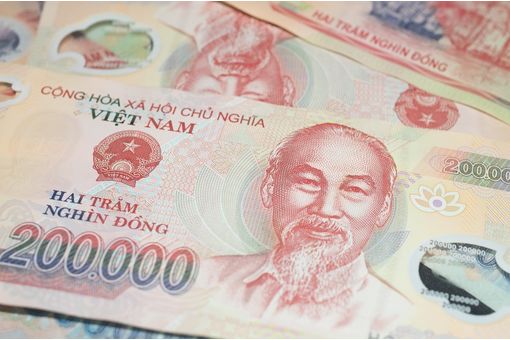Interviews
New protocol to spot asymptomatic carriers of Sars-Cov-2
25 May '20
3 min read

Pic: Shutterstock
A team led by the Indian Institute of Technology, Bombay (IIT-B) has developed a new testing protocol that helps identify asymptomatic carriers of the Sars-Cov-2 virus. The 28-member team comprises researchers from IIT-B, National Centre for Biological Sciences, InStem, Harvard University, Harvard Medical School, SASTRA University and Mumbai start-up Shop101.
Described as ‘a single-round smart pooling technique for COVID-19 testing’, the new testing method called Tapestry involves sending a swab sample to three pools. If a sample tests positive, samples in the remaining two pools will also test positive.
Tapestry has been validated through laboratory experiments with synthetic RNA and DNA fragments. Results have been confirmed using computer simulation, according to another report in a top English-language newspaper.
Tapestry’s method is unlike the technique of pooling samples approved by the Indian Council for Medical Research (ICMR), which requires at least multiple rounds of testing if a sample from a pool tests positive. Each round of testing takes four hours.
Pooling test samples based on ICMR norms involves placing a mixture of five different swab samples in a pool, extracting the virus ribonucleic acid (RNA) and conducting a reverse transcription-polymerase chain reaction (RT-PCR) test that spans four hours at one go. A positive pool indicates that at least one person is infected but the individual’s identity is not known. What follows is retesting and separately extracting virus RNA from each of the five samples from the pool.
While two rounds of pooling takes eight hours, the IIT-B protocol can test 1,000 people in 100 tests and recover up to 10 positives, said Manoj Gopalkrishnan, principal investigator and associate professor at IIT-B’s department of electrical engineering.
For instance, medical staff, police personnel, delivery personnel, residents in high-density locations or organisations that want to bring employees back can undergo pool testing every day or at least once in two or three days, said Gopalkrishnan.
The team has also developed an app where laboratory technicians can enter the viral load seen in the test. The algorithm, deployed on the cloud, will then make the calculations and give the test results.
Once permissions come through and clinical trials are successful, the team will approach the ICMR to consider deploying Tapestry in testing centres as well as other institutions such as hospitals and airports. In the second phase, the team plans to undertake clinical trials at five testing centres across the country.
Described as ‘a single-round smart pooling technique for COVID-19 testing’, the new testing method called Tapestry involves sending a swab sample to three pools. If a sample tests positive, samples in the remaining two pools will also test positive.
Tapestry has been validated through laboratory experiments with synthetic RNA and DNA fragments. Results have been confirmed using computer simulation, according to another report in a top English-language newspaper.
Tapestry’s method is unlike the technique of pooling samples approved by the Indian Council for Medical Research (ICMR), which requires at least multiple rounds of testing if a sample from a pool tests positive. Each round of testing takes four hours.
Pooling test samples based on ICMR norms involves placing a mixture of five different swab samples in a pool, extracting the virus ribonucleic acid (RNA) and conducting a reverse transcription-polymerase chain reaction (RT-PCR) test that spans four hours at one go. A positive pool indicates that at least one person is infected but the individual’s identity is not known. What follows is retesting and separately extracting virus RNA from each of the five samples from the pool.
While two rounds of pooling takes eight hours, the IIT-B protocol can test 1,000 people in 100 tests and recover up to 10 positives, said Manoj Gopalkrishnan, principal investigator and associate professor at IIT-B’s department of electrical engineering.
For instance, medical staff, police personnel, delivery personnel, residents in high-density locations or organisations that want to bring employees back can undergo pool testing every day or at least once in two or three days, said Gopalkrishnan.
The team has also developed an app where laboratory technicians can enter the viral load seen in the test. The algorithm, deployed on the cloud, will then make the calculations and give the test results.
Once permissions come through and clinical trials are successful, the team will approach the ICMR to consider deploying Tapestry in testing centres as well as other institutions such as hospitals and airports. In the second phase, the team plans to undertake clinical trials at five testing centres across the country.
Fibre2Fashion News Desk (DS)
Popular News
Leave your Comments
Editor’s Pick
Andreas Rass
ZIMMER AUSTRIA | Digital Printing Systems
Ritesh Dodhia
Dodhia Synthetics Limited
































-Ltd..jpg?tr=w-120,h-60,c-at_max,cm-pad_resize,bg-ffffff)





.jpg?tr=w-120,h-60,c-at_max,cm-pad_resize,bg-ffffff)
.jpg?tr=w-120,h-60,c-at_max,cm-pad_resize,bg-ffffff)






